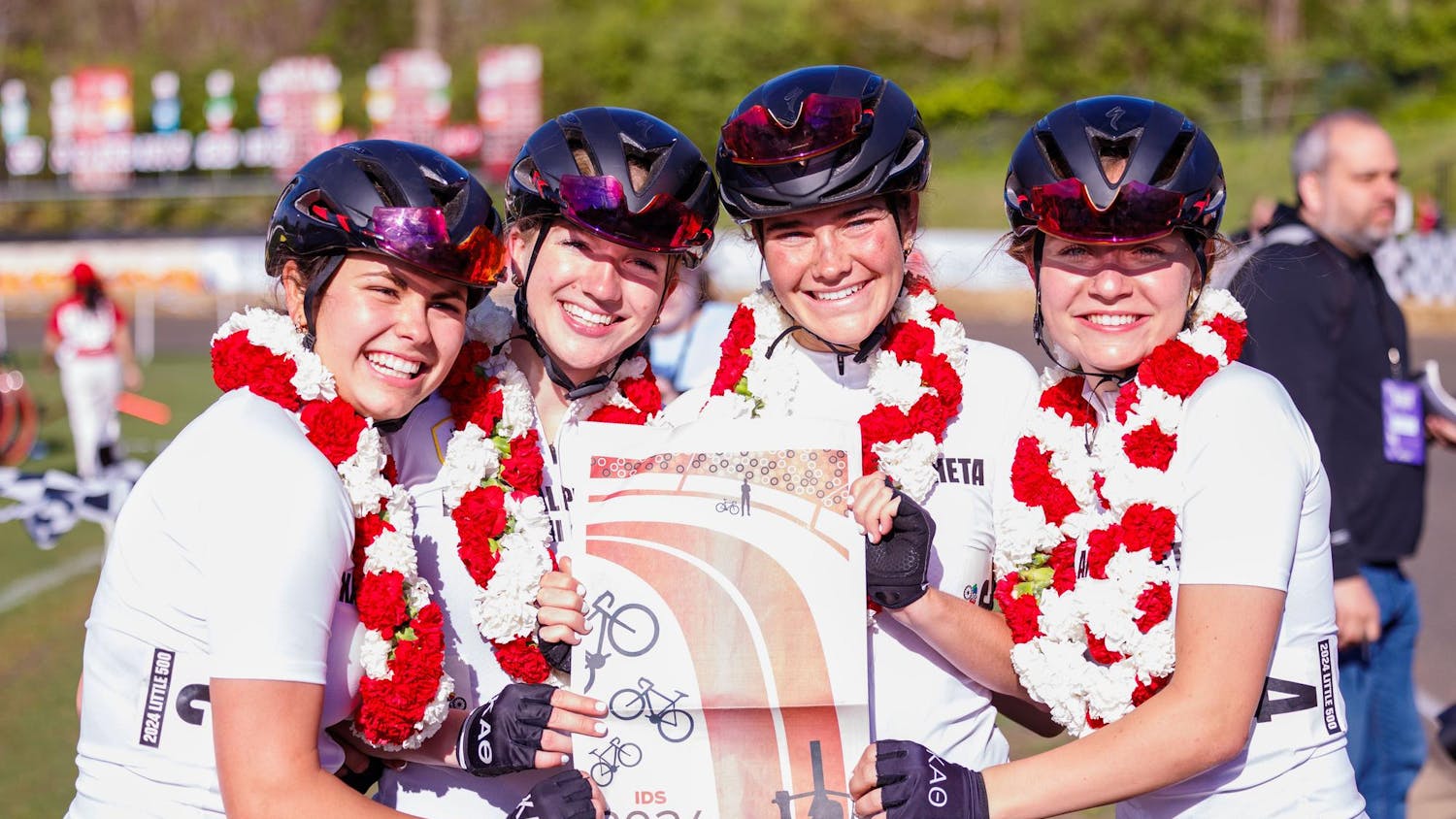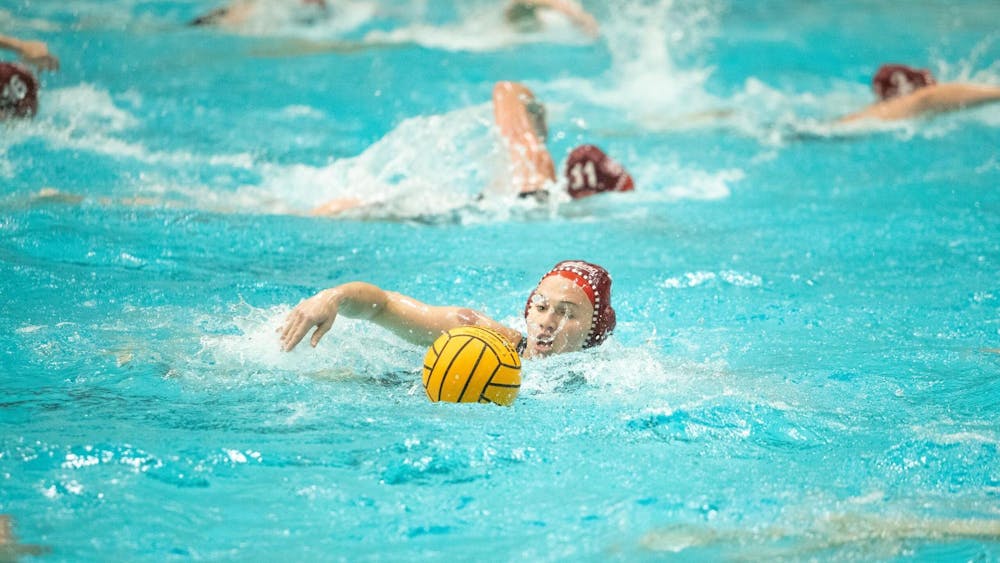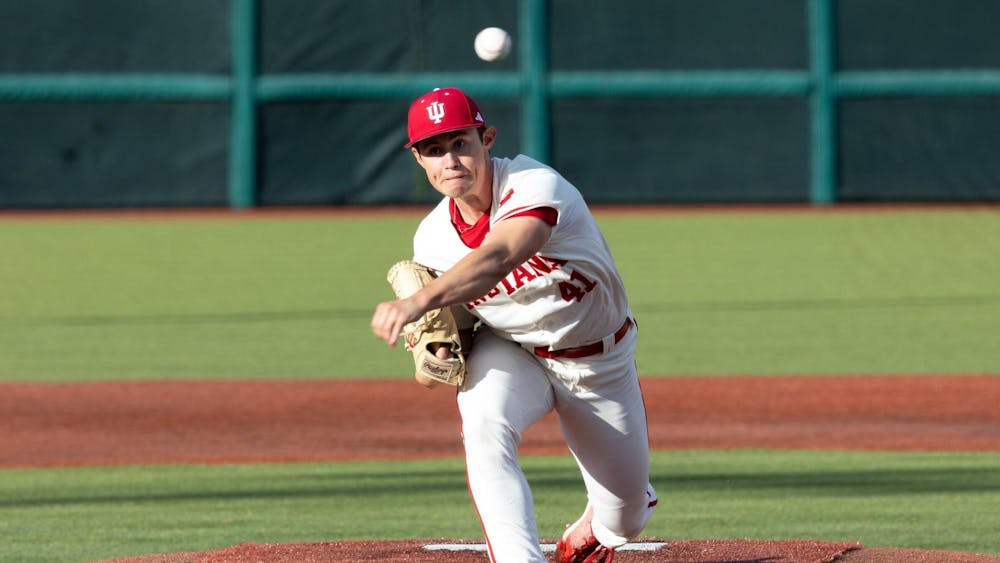It was her first night on the job, and Tracy Dodds felt worthless.
“He told me the day I arrived, he said, ‘A mistake has been made,’” Dodds recalled. “‘You should’ve never been hired. There’s no room for dead weight on my staff.’”
Dodds sat with Assistant Sports Editor Bill Dwyre. It was her first encounter with him since she was hired at the Milwaukee Journal.
It was Dec. 31, 1973, one year after the passage of Title IX. Women were just finding their voices in the sports world.
Two weeks earlier, Dodds graduated from the IU School of Journalism.
Title IX was making an immediate impact, as 1973 was also the year Billie Jean King defeated Bobby Riggs in the Battle of the Sexes tennis match.
Originally intended to make changes in women’s education, the legislation was providing new opportunities for women in sports.
For Dodds, it meant becoming one of the first women sports writers in the country.
In the seven years following her first interaction with Dwyre, he was promoted from assistant sports editor to sports editor in Milwaukee.
He would then became sports editor of the Los Angeles Times.
Dodds was working in Houston at the time and got a call from Dwyre.
“It was about 1980 when he hired me at the Los Angeles Times,” Dodds said. “I had won him over.”
***
This April, 41 years after Dodds began as a sports journalist, she became the first woman inducted into the Indiana Sportswriters and Sportscasters Association Hall of Fame.
“It’s one thing to say, ‘I used to be a sportswriter’ or ‘I used to work for the LA Times,’” Dodds said. “But something like this really gives it credibility and validation.”
Dodds’ interest in reporting developed when she was a child because her father was the retail ad manager for the Lafayette Journal and Courier.
She would visit the newspaper with him every Saturday morning.
“I thought that sports writing was probably the neatest profession in the world, but I was going to settle for being a newspaper reporter,” Dodds said.
She grew up in Lafayette in the 1960s. There weren’t competitive sports for girls, not in the way there were for boys.
While some girls were swimmers or golfers, it wasn’t girls’ sports like you see girls’ sports today, Dodds said.
Dodds was the oldest of four. Her life revolved around her brother Kirk’s sports schedule.
“Mealtime depended on when his practice was,” she said. “Vacations depended upon when his mid-season break was. My brother was an athlete and that was very, very important in those days.”
Dodds didn’t mind that all the attention was on boys’ sports. She was just happy to be a little bit a part of it.
When she enrolled at Lafayette Jefferson High School in 1966, she began writing for the Lafayette Jeff Booster, the student newspaper.
“That’s when I realized, ‘Now, here’s a way I can be a part of that excitement,’” she said.
***
Dodds walked into practice hoping to talk to Head Swimming Coach Doc Councilman. It was her first day on the swimming beat for the Indiana Daily Student, and she was feeling apprehensive.
She still wasn’t sure whether a career in sports writing would be possible.
Councilman was coaching a team with seven Olympians, including three-time Olympic medalist Gary Hall. The team was the five-time defending national champion.
Councilman couldn’t talk to her at that time and asked Dodds to come back at 6 the next morning instead.
When Councilman saw the young reporter at his pool the following morning, he knew she was serious, Dodds said.
“Once he realized I truly wanted to learn this and I was interested, when you have the sports that aren’t used to getting a whole lot of attention, he took a lot of time with me, and he was so nice,” she said.
In working with the IU Sports Information Department on the swimming beat, Dodds met Bob Hammel.
Hammel was the sports editor at the Bloomington Herald-Telephone.
“He would cover two or three events a day, get into the office and as fast as you could type, he would write two game stories and write a column while you were still flipping through your notes deciding what to lead with.” she said.
Because everyone read the IDS, Dodds said, Hammel became familiar with her work.
Dodds got her big break in the spring of 1973.
On the same day IU Men’s Basketball played University of California at Los Angeles in the final four of the NCAA Tournament, the IU swim team was competing for its sixth consecutive national title.
Hammel sent Dodds to cover the meet in Nashville, Tenn.
“It wasn’t until I met Bob Hammel that I realized this could be a reality,” Dodds said. “I could do this. I could stay in sports.”
***
As Dodds worked her way up in sports, the timing always seemed perfect because everywhere she went there were sports legends.
In Houston, there was track and field Olympian Carl Lewis, and in Los Angeles, Dodds covered UCLA greats Reggie Miller and Troy Aikman.
Then, in August of 1988, Wayne Gretzky was traded from Edmonton, Canada, to L.A. Dodds was put on the L.A. Kings beat and traveled all across Canada and the eastern United States with the team.
By now, Dodds had an established career. She got married and had two children.
Although she loved her job, balancing family life and the realities of her career became too much.
Dodds’ youngest son, Jason, had Down syndrome and was diagnosed with leukemia when he was two years old.
Dodds said she experienced a moment of truth while she sat on the plane crying right before flying to a Kings game in Montreal.
Jason was sick at the City of Hope hospital in L.A. and had been through a year and a half of chemotherapy.
“It suddenly hit me, ‘You know what? No one made me get on this plane. I got on this plane on my own,’” Dodds said. “What’s more important? My son or a hockey game in Montreal? That’s when I said, ‘No, I can’t do this anymore.’”
Dodds made the game but quit her job at the Times. She said it was one of the hardest decisions she’s ever made.
“Bill Dwyre, among others, told me I’ve lost my ever-loving mind, that you do not leave the L.A. Times,” she said. “But you do what you have to do.”
***
No more traveling meant no more writing for Dodds.
She took a job at the L.A. Daily News to get off the road and became an editor, a rarity for women at the time.
“There was starting to be a lot of women in sports but very few as editors,” Dodds said.
Dodds and her family moved to Austin, Tex., where she was the sports editor of the Austin American Statesman.
She then took the job as associate sports editor for the Cleveland Plain Dealer.
It was 2001, six days after 9/11, when Jason died from a stroke at age 15.
“They told me he was going to outgrow his heart, and indeed he did outgrow his heart,” Dodds said. “He just got big enough and his heart couldn’t keep up anymore.”
The same year, her older son Jeremy was starting his freshman year at Ohio State. Dodds was ready for a change.
When she got the opportunity to return to her writing roots at the Indianapolis Star and to become a Hoosier again, Dodds took it.
“I had really always thought of myself as a writer and I really wanted to get back to it,” she said.
***
Dodds’ sports writing career ended in 2005. She returned to her hometown of Lafayette with many accomplishments to look back on.
In 1989, Dodds was one of 30 women to gather in Oakland, Calif.
The women formed the Association for Women in Sports Media, or AWSM, which they pronounced “awesome.”
Dodds was the first vice president of the organization. There was finally a way female journalists could be spoken for in one voice, she said.
At AWSM’s 25th anniversary and annual convention in Phoenix, Dodds found out she would be inducted into the Indiana Sportswriters Hall of Fame.
“The thing is, I think Bob Hammel had been put in charge of letting me know this, but he didn’t have my cell phone number and he couldn’t find me,” Dodds said, laughing.
Dodds was used to firsts. But now she had set a new standard in the world of women’s sports media.
“It was wonderful,” she said. “I was so happy. I was so proud.”
IU alumna becomes 1st woman in ISSA Hall of Fame
Get stories like this in your inbox
Subscribe





